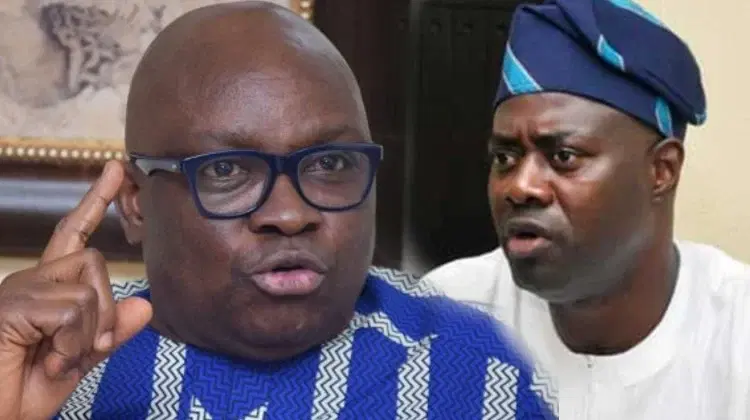
New York • RadioShack Corp., the electronics chain trying to stave off bankruptcy, agreed with a group led by Normal General to refinance a $535 million credit facility to aid it restock inventory ahead of the holidays.Common General, a New York-primarily...
New York • RadioShack Corp., the electronics chain trying to stave off bankruptcy, agreed with a group led by Normal General to refinance a $535 million credit facility to aid it restock inventory ahead of the holidays.
Common General, a New York-primarily based hedge fund, led a group of lenders that acquired the asset-backed revolving credit line from Common Electric’s lending arm and agreed to loosen its borrowing terms, Fort Worth-primarily based RadioShack mentioned final week.
Normal Common and Litespeed Management also agreed to provide $120 million to cash collateralize letters of credit for the corporation. The retailer stated it expects these funds to be converted into equity later.
The moves, some of which Bloomberg reported before the company’s announcement, may well present RadioShack with enough of a monetary cushion to last through the essential year-end buying season. RadioShack has posted 10 straight quarters of losses, hurt by competitors from e-commerce web pages and discount retailers.
RadioShack’s $324.eight million face value of six.75 % unsecured bonds due in May 2019 jumped 7.7 cents on the dollar to 41.eight cents Friday, according to Trace, the bond-value reporting method of the Monetary Industry Regulatory Authority.
Standard Basic stated in a filing last month that it was working to increase RadioShack’s liquidity ahead of the holiday season. The fund, RadioShack’s largest investor, also entered into a standstill agreement lasting until June 2015 that prevents it from taking over the board or proposing an acquisition or restructuring devoid of RadioShack’s consent.
If the $120 million is converted to equity, Typical Basic will be in a position to name 4 directors to the retailer’s board. RadioShack’s chief executive officer and two independent directors selected by the business also would sit on the board.
Current shareholders would personal 20 percent of the company’s shares if none of them purchase stock in a rights providing that is component of the aid package. Any entity acquiring shares in the providing would have its voting rights limited to about 35 percent of the stock.
The refinancing offers RadioShack access to more money and greater flexibility, because the existing debt agreement restricts how significantly funds it can draw from the revolver, according to a Dec. 13 filing with the Securities and Exchange Commission. It also may offer the retailer with adequate leeway to close a bigger number of underperforming shops, helping the company consume less cash.
RadioShack creditors blocked a strategy earlier this year to shut 1,100 shops, forcing the retailer to limit the closings to as a lot of as 200.
Common General emerged as a prospective savior for the retailer in August, when Bloomberg reported that the hedge fund was in financing talks. The firm previously orchestrated a lifeline for American Apparel Inc., one more troubled retailer.
RadioShack CEO Joe Magnacca has been remodeling retailers and revamping its solution lineup in a bid to revive sales. The former Walgreen executive, who took more than last year, brought in a new leadership group and has outlined what he calls the "5 pillars" of a turnaround, which includes boosting efficiency and repositioning its brand.
So far, the strategy hasn’t reversed RadioShack’s decline. Comparable-retailer sales - thought of a essential gauge of functionality - fell about 20 % last quarter. The 93-year-old corporation has only reported a single quarter of positive similar-shop sales in the previous three years.
RadioShack said last month that it has liquidity of $182.five million, such as $30.five million in cash. Devoid of reaching a financing agreement, "we may perhaps not have enough cash and functioning capital to fund our operations beyond the very close to term, which raises substantial doubt about our ability to continue as a going concern," the corporation stated.
For the refinancing, RadioShack was advised by Peter J. Solomon Co. and its legal counsel was Jones Day. The adviser for the company’s board was Lazard Freres & Co. Debevoise & Plimpton was Typical General’s legal counsel, and Blank Rome advised the credit line investors.
RadioShack shares have mainly traded beneath $1 in current months, prompting the New York Stock Exchange to notify the corporation in July that it was out of compliance with trading requirements. At least two analysts set $ price targets on the stock.
RadioShack started in 1921 as a mail-order retailer in Boston that catered to amateur ham-radio operators and maritime communications officers. It expanded into a wider variety of electronics, and by the 1980s was once seen as a destination for individual computer systems, gadgets and components that were really hard to discover elsewhere. In current years, competitors from Wal-Mart and an army of e-commerce sellers has hurt client visitors.






















